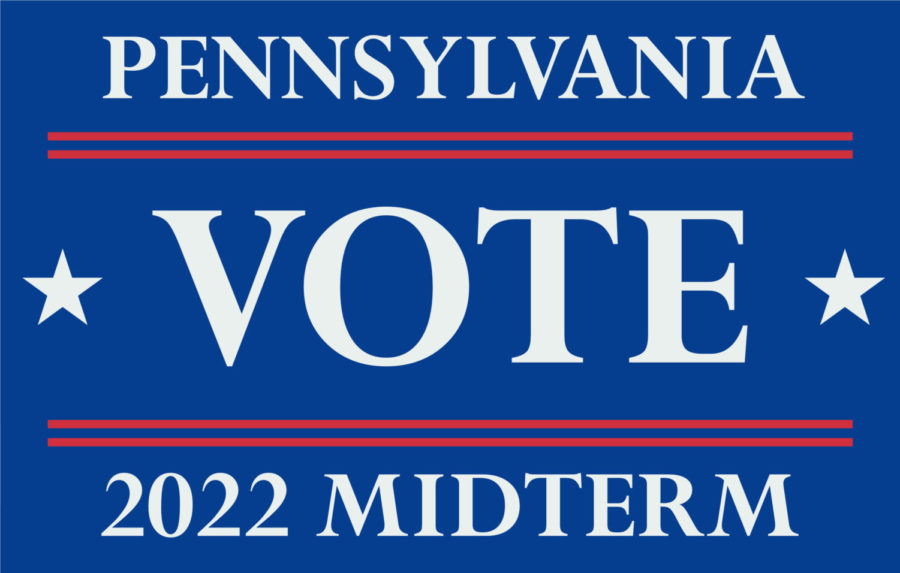Women’s issues are on the line in midterm election
October 28, 2022
Pennsylvania continues to emerge as a battleground state as midterm election season ramps up this fall, and women’s issues are at the forefront of voter’s thoughts.
Senate candidates Lt. Gov. John Fetterman, a Democrat, and Dr. Mehmet Oz, a Republican and former television host, held a debate on Tuesday night — their conversation on abortion access became a standout moment of the night.
Oz said the federal government should not be involved in making decisions on the issue, that it should be left to “women, doctors, and local political leaders” to decide, while Fetterman said he agreed with the framework of Roe v. Wade.
In cases of presidential elections, many students at Bucknell choose to register in Pennsylvania, a swing state, where their vote will impact the results more dramatically than it might at home.
With catalysts like the Dobbs v. Jackson abortion-rights decision, abortion is one of the main concerns on the ballot for college-age Pennsylvanians, among the economy and inflation, according to a New York Times poll.
The 2020 election saw 154 million Americans show up at the polls to vote, a record 12 percent increase since the 2016 election. In Pennsylvania, the voter turnout was even higher, climbing to 76 percent, with 54 percent of voters under 30 voting, according to Tufts University.
Voter turnout is historically less overwhelming in non-presidential elections among younger demographics, but that could change this fall because of a recent focus on abortion rights, according to Department Chair of Political Science Professor Michael James.
Inflation isn’t something that voters can change, James said, because it depends more on decisions made by the U.S. Federal Reserve more than an elected official.
“That’s very different I think in respect to, especially in Pennsylvania, abortion,” James said. “The state legislature is majority Republican, both the state house and the state senate, and its perfectly conceivable that they would vote to further restrict abortion.”
Abortion is still legal up to 23 weeks of pregnancy in Pennsylvania, both via clinic procedures and pills. This is in the hands of state legislatures to protect or restrict, which is decided by this particular midterm election.
Governor Tom Wolf, a Democrat, has vetoed past GOP efforts to restrict abortion, but the Republican-majority General Assembly is bypassing this through attempts to amend the state constitution, which does not require Wolf’s signature. This measure was taken in West Virginia, Tennessee and Louisiana to ban abortions.
With Wolf nearing his term limit, the gubernatorial race between state Sen. Doug Mastriano, a Franklin County Republican, and Attorney General Josh Shapiro, a Democrat, has become a focus for Pennsylvanians this November.
“If Doug Mastriano, the Republican is elected, than it’s very conceivable that abortion could be further restricted or completely outlawed. If the Democrat, Josh Shapiro is elected, that’s almost certainly not going to be the case because he alone could veto it,” Professor James said.
Mastriano has said he supports serious criminal charges for women who seek abortion at any stage of pregnancy, while Shapiro has said he will maintain access to an aborting for women.
Stakes are always high for elections in swing states, this year more than most. Voters aren’t just picking between candidates, they are singlehandedly deciding the issue of women’s health here in Pennsylvania.
“I’m choosing to vote in the upcoming election because I’m from D.C., where my vote as a Democrat doesn’t have as much leeway or impact as it does here in Pennsylvania,” Callie Mowry ’25 said.
Among a list of priorities for Pennsylvanians like inflation, abortion is a standout.
“I registered to vote in Pennsylvania because it’s really important to me to protect women’s health choices, and my vote matters more here on those issues than it does in California,” Katheryn Brown ’25 said.
As a large influx of new students have joined campus this year, it is critical that Bucknellians actively make a plan to vote here in Pennsylvania.
“Your vote will matter in a way that it might not matter in a reliably blue or reliably red state,” James said, as a word of advice to voters.
For more resources and information on registering, mail in ballots and polling locations, visit BisonVote’s page on bucknell.edu.




















